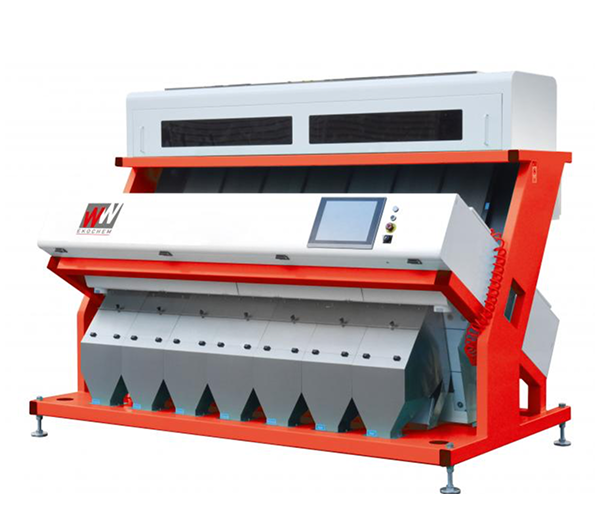Optical sorting machines for bulk materials, designed for the separation of regrinds and food products, are an ideal solution wherever quality and purity of materials are prioritised.
Ekochem’s sorting machines deliver cleaning efficiency of up to 99.99%. Their capacity ranges from 500 kg/h to 16 t/h, depending on the input material and contamination level.
Our sorters are equipped with advanced data processing technology, allowing for quick and precise sorting.
Cutting-edge CCD cameras guarantee the best component recognition possible. Highly durable pneumatic solenoid ejectors are characterised by long-term, failure-free operation without loss of calibration.


